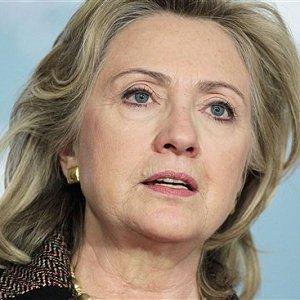M K Bhadrakumar in Asia Times Online. Here
Two templates in regional politics are seriously debilitating the United States's campaign to bring Pakistan down on its knees in the Afghan endgame. One is that Delhi has distanced itself from the US campaign and pursues an independent policy toward Islamabad.
The second factor frustrating US policies to isolate Pakistan is the South Asian nation's bonhomie with Iran. Pakistan would have been pretty much isolated had there been an acute rivalry with Iran over the Afghan endgame. The current level of cordiality in the relationship enables Islamabad to focus on the rift with the US and even draw encouragement from Tehran.
It's baloney
A recent statement by the Indian External Affairs Minister S M Krishna on the US-Pakistan rift underscored that India doesn't see eye-to-eye with the US approach. (See US puts the squeeze on Pakistan, Asia Times, October 22). It was carefully timed to signal to Washington (and Islamabad) that Delhi strongly disfavored any form of US military action against Pakistan.
There is a string of evidence to suggest that the Pakistani leadership appreciates the Indian stance. The general headquarters in Rawalpindi acted swiftly on Sunday to return to India within hours a helicopter with three senior military officers on board which strayed into Pakistani territory in bad weather in the highly sensitive Siachen sector. The official spokesman in Delhi went on record to convey India's appreciation of the Pakistani gesture. Such conciliatory gestures are rare (for both sides) in the chronicle of Pakistan-India relationship.
Again, last week, India voted for Pakistan's candidacy for the Asia-Pacific slot among the non-permanent membership of the United Nations Security Council and the Pakistani ambassador promptly responded that he would work with his Indian counterpart in New York. Ironically, the UN has been a theater for India and Pakistan's frequent clashes over the Kashmir problem.
Looking ahead, the prime ministers of India and Pakistan are likely to meet on the sidelines of the South Asian Association For Regional Cooperation summit in Male on November 10-11. Washington would have been quick to insist that it acted as "facilitator" in fostering the improving climate in India-Pakistan relations. But the US is instead watching with a degree of discomfort that its complicated South Asian symphony is throwing up jarring notes. Calibrating India-Pakistan tensions traditionally constituted a key element of the US's regional diplomacy.
Washington has "retaliated" to Krishna's statement by issuing a travel advisory cautioning American nationals from visiting India because of heightened terrorist threats. Delhi, in turn, ticked off Washington saying it considered the US move "disproportionate" - a cute way of saying that the advisory is a load of baloney.
Jundallah in retreat
What is happening in Pakistan-Iran relations is even more galling for the US. There has been a spate of high-level visits between Islamabad and Tehran and the two capitals have reached mutual understandings on a range of security interests. Last week, Tehran acknowledged that there had not been a single attack by the terrorist group Jundallah from the Pakistani side of the border in the Balochistan region during the past 10 months.
Concerted effort
In sum, the overall regional scenario is becoming rather unfavorable to the US. The easing of tensions in Pakistan's relations with India and Iran undermine US strategy to get embedded in the region.
The Afghan endgame is moving into a crucial phase; much will depend on regional politics. The worst-case scenario for the US is that subsuming the contradictions in the intra-regional relationships between and among Pakistan, Iran, India and China, these countries might have a convergent opinion on the issue of American military bases.
Ambassador M K Bhadrakumar was a career diplomat in the Indian Foreign Service. His assignments included the Soviet Union, South Korea, Sri Lanka, Germany, Afghanistan, Pakistan, Uzbekistan, Kuwait and Turkey.










